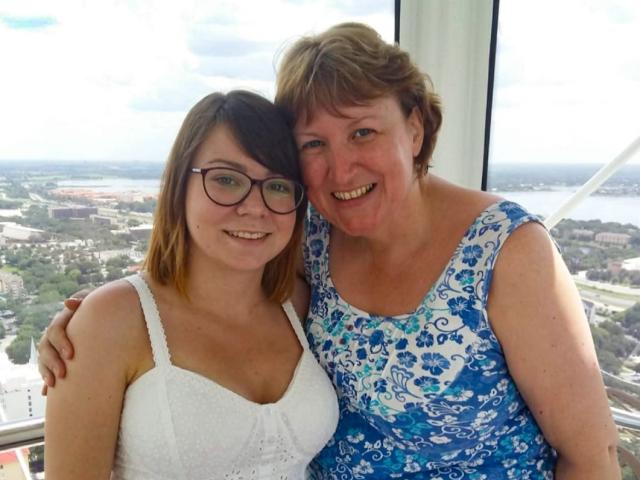
World Cystic Fibrosis Day: Study links data to better understand health implications for Cystic Fibrosis carriers
8 September
A study funded by Health and Care Research Wales is exploring the health of cystic fibrosis carriers, in order to better understand the implications of what is often a “hidden” health status.
Cystic fibrosis (CF) is a genetic condition which causes a build-up of mucus in the lungs, digestive system and other organs. The condition is usually diagnosed as part of newborn screening tests. It occurs when someone inherits two copies of a change in a gene called CFTR, one from each parent. Individuals who have one copy of the changed CFTR gene are called “carriers” and are usually unaffected by the condition itself. However, there is some evidence that being a carrier could still impact their health.
CF carriers are usually identified through a relative being diagnosed with CF, with the All Wales Medical Genomics Service (AWGMS), hosted by Cardiff and Vale University Health Board, performing around 500 CF gene tests each year.
Robert Maddison, a Health and Care Research Wales Health PhD Student is linking AWGMS archive data with GP appointments and hospital visits by the same individuals, held in the Secure Anonymised Information Linkage (SAIL) Databank, to understand whether CF carriers are more susceptible to related conditions such as diabetes, bronchiectasis and pancreatitis. The project aims to deepen understanding of CF and improve the support offered to people with the condition and their families.
Diane Lloyd and her husband Andrew, from Llanidloes, discovered they are both CF carriers when their daughter Vicki, now 31, was diagnosed with CF at six months old. Diane said, “Vicki was born a few weeks early weighing and struggled to gain weight. At six months old she spent a couple of weeks in hospital with a chest infection. A nurse noticed her skin seemed salty, which can be an indicator of CF. Vicki had a “sweat test” and a couple of days later it was confirmed.
"Neither my husband Andrew or I knew we were carriers. My grandmother’s family often had poorly chests, but there wasn’t any kind of testing available at that time and we didn’t think any more of it. It was a major shock and took a long time to sink in.”
Robert Maddison said,
Historically, there hasn’t been much study of CF carriers as they are so difficult to identify. Around 4%, or one in 25 people in the UK are CF carriers, but most could easily never discover that they are one. In Wales that could mean approximately 125,000 people, so there could be a public health level effect that is going on silently.
“The advantage of large health data sets like SAIL, alongside advancements in genetic testing, means more carriers are being identified and we have better information on their health. Analysing this could allow us to make recommendations. For example, if we found CF carriers have a higher risk of developing diabetes, a common CF complication, there would be a clear argument for increased screening.
“Being told you are a CF carrier can be a difficult and emotional experience. Research like this will help improve the information available at this stage, making it as comprehensive and accurate as possible to reassure and guide patients and clinicians.”
Diane hopes this research will lead to more knowledge, support and reassurance for families. She continued, “Being able to offer families more advice on what this might mean for their health in the future would be wonderful. Looking at the data like this could make some new connections, and if it did highlight something, it’s good to be forewarned.”
Professor Ashley Akbari, Head of SAIL User and Data Support Services and Research Innovation at SAIL Databank, worked closely with Robert on the study. Professor Akbari said, “Research like Robert’s shows how this can transform our understanding of conditions such as cystic fibrosis for those people who are carriers, helping to inform earlier interventions, guide treatment, and ultimately improve lives and services."
For more research stories delivered to your inbox, sign up to the bulletin.